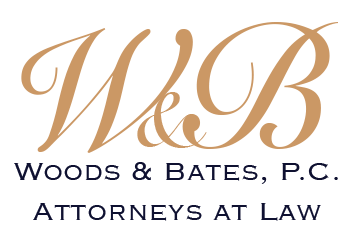Revocable Trust Lawyer in Illinois
Since 1972, Woods & Bates, P.C. has been a trusted legal ally for individuals in Illinois, offering guidance in estate planning, real estate, and estate administration. In this blog, we delve into revocable trusts, a flexible tool for estate planning that can be pivotal in securing your legacy. Our approach is tailored to meet the unique circumstances of each client, ensuring your estate planning strategy reflects your personal aspirations and needs.
The Benefits of Choosing a Revocable Trust
Understanding the differences between a revocable trust and a will is crucial when planning your estate, as each offers unique advantages and serves different needs. Here’s a comparison of the two to help you make an informed decision:
- Probate Process: One of the primary differences between a revocable trust and a will is how they are handled after your death. A will must go through probate, which is the legal process of validating the will and overseeing the distribution of your assets. Probate can be time-consuming, public, and sometimes costly. In contrast, a revocable trust typically bypasses the probate process, allowing for a quicker, more private transfer of assets to your beneficiaries. This can mean fewer legal hurdles and potentially reduced costs.
- Privacy Considerations: Wills become public record once they enter the probate process, meaning anyone can access the details of your estate. A revocable trust, on the other hand, offers greater privacy as it does not become a public record, keeping the details of your estate and beneficiaries private.
- Control Over Assets During Life: Both a will and a revocable trust allow you to specify how your assets should be distributed after your death. However, a revocable trust also provides you with control over your assets during your lifetime. You can alter or revoke the trust at any time, giving you flexibility to adjust your estate plan as your circumstances change.
- Managing Assets Upon Incapacity: A revocable trust can be particularly advantageous if you become incapacitated. The trustee you’ve appointed can manage the trust assets on your behalf, according to the instructions you’ve set in the trust. This is not possible with a will, as it only takes effect after death.
- Complexity and Setup: Setting up a revocable trust can be more complex and may require more upfront work than a will. This includes transferring assets into the trust to ensure its terms cover them. A will, however, is generally simpler to create and execute, but it lacks some of the benefits that a trust offers, particularly regarding probate and privacy.
- Cost Considerations: Initially, creating a revocable trust may be more expensive than drafting a will due to its complexity. However, the potential savings in probate costs and the efficiency in asset distribution can offset this initial investment over time.
Revocable Trusts vs. Wills
Choosing between a revocable trust and a will is a critical decision when planning your estate. While both serve to manage your assets, a revocable trust offers distinct advantages. It can bypass the probate process, providing a smoother and more private transfer of assets. This means fewer legal hurdles and potentially reduced costs for your beneficiaries. Our team at Woods & Bates, P.C. assists in evaluating which option best serves your goals, ensuring your estate plan is robust and effective.
Tailoring Your Revocable Trust to Your Unique Needs
Every estate plan is unique. At Woods & Bates, P.C., we pride ourselves on taking a holistic approach to estate planning. We work closely with you to understand your needs, family dynamics, and financial goals. Whether it’s setting up a trust to support a charitable cause or ensuring your loved ones are taken care of, our experienced attorneys are here to craft a revocable trust that truly reflects your intentions and values.
Taxes and Asset Protection
While revocable trusts offer flexibility, it’s also essential to understand their tax implications and asset protection features. Unlike other trust types, revocable trusts do not inherently provide tax benefits or shield assets from creditors during your lifetime. Our Woods & Bates, P.C. team guides you through these nuances, helping you make informed decisions about integrating a revocable trust into your broader financial and estate planning strategy.
Partner with Woods & Bates, P.C. for Your Estate Planning Needs
Embarking on estate planning, particularly with revocable trusts, can be manageable. At Woods & Bates, P.C., we’re committed to making this process seamless and stress-free. Our experience and dedication to our client’s unique needs have made us the preeminent rural law firm in central Illinois. Contact us to start securing your legacy and ensuring your estate plan reflects your wishes.
Call us at Woods & Bates, P.C. to speak with a lawyer in Illinois at 217.735.1234, or contact us online to schedule a consultation. Let us guide you through your probate, estate planning, trust, or real estate matter with the compassion and experience you deserve.

